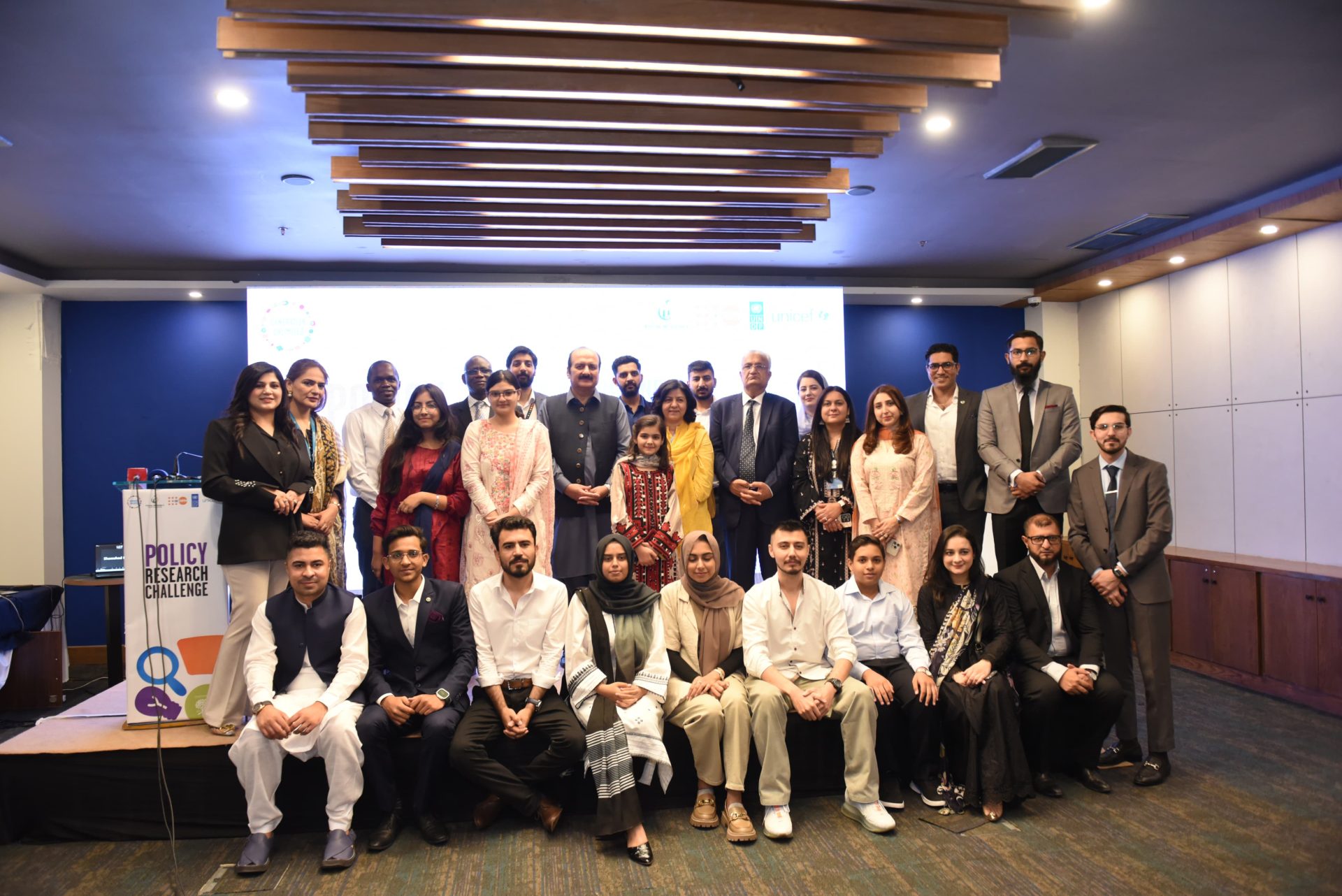 Under the umbrella of Generation Unlimited, the Youth Policy Lab (YPL) platform has emerged, bringing together UN agencies UNICEF, UNFPA, UNDP and the Prime Minister’s Youth Programme (PMYP) in a synergistic collaboration with the School of Leadership Foundation (SoLF). This coalition introduced the Policy Research Challenge (PRC) in 2023, marking a significant stride in involving young people at the policy level. Through the PRC, the YPL gives young people a platform to have their voices heard in policy decisions, ensuring their unique needs are considered during important developmental stages.
Under the umbrella of Generation Unlimited, the Youth Policy Lab (YPL) platform has emerged, bringing together UN agencies UNICEF, UNFPA, UNDP and the Prime Minister’s Youth Programme (PMYP) in a synergistic collaboration with the School of Leadership Foundation (SoLF). This coalition introduced the Policy Research Challenge (PRC) in 2023, marking a significant stride in involving young people at the policy level. Through the PRC, the YPL gives young people a platform to have their voices heard in policy decisions, ensuring their unique needs are considered during important developmental stages.
To mark the culmination of the Policy Research Challenge, a pivotal roundtable was conducted to stir the dialogue among policymakers from various ministries, private sector stakeholders and young researchers. The event also aimed to bridge the divide between research and policy formulation, and advocating for the inclusion of young people in research and policy recommendations. The young researchers employed a transdisciplinary approach to climate adaptation, exploring issues related to water, education, health, smog, agriculture, and community resilience across districts including Lahore, Johi, Skardu, Swat, Lasbela, Hub, Bahawalpur, and Karachi.
This approach highlights the significance of climate adaptation for human capital development in Pakistan. Rana Mashood, Chairperson of the Prime Minister’s Youth Program, delivered an impactful and insightful keynote address, emphasizing the pivotal role that young people play in addressing the global challenge of climate change. He remarked, “Supporting young people and ensuring their inclusion in the policy-making process to combat climate change is not just a matter of importance; it is an absolute necessity. The innovative ideas and unique perspectives that the youth bring to the table are crucial components in the development of effective and inclusive climate policies. These policies are not only aimed at addressing the current environmental crises but also at paving the way for a sustainable and resilient future. The involvement of young people ensures that these policies are forward-thinking and comprehensive, taking into account the long-term impacts and diverse needs of all communities. By harnessing the creativity, energy, and commitment of the youth, we can drive meaningful change and create a legacy of sustainability for future generations. Their active participation is essential in transforming our approach to climate action and in achieving the ambitious goals set forth by our global environmental agenda. Representatives from UNICEF, UNDP, and UNFPA attended the event, underscoring the strategic importance of youth empowerment and evidence-based policymaking in achieving sustainable development goals.
Dr. Rubina Ali, Assistant Representative of UNFPA, remarked, “Combating climate change requires innovative and community-based solutions. It requires a new perspective, and who better to offer these solutions than young people who have only known a world grappling with its consequences.”
Inoussa Kabore. Deputy Representative (Programmes) UNICEF Pakistan, highlighted how these researchers have taken a transdisciplinary approach to the topic of climate adaptation and have explored issues faced by them and their communities with regards to water, education, health, smog, agriculture, and community resilience.
A highlight of the roundtable was the Policy Interface Matchup, where adolescent and youth researchers engaged directly with ministry representatives, facilitating a constructive dialogue to align adolescents and youth-driven research with governmental policies, ensuring inclusivity, responsiveness, and efficacy in meeting the needs of Pakistan’s diverse communities.
The Policy Research Challenge stands as a testament to the transformative power of adolescents and youth in shaping a sustainable world, with their contributions poised to impact future policymaking. Moving forward, these collaborative efforts will continue to inspire positive change, integrating young people’s perspectives into national policies to build a more equitable and resilient future.
Editor: Kamran Raja